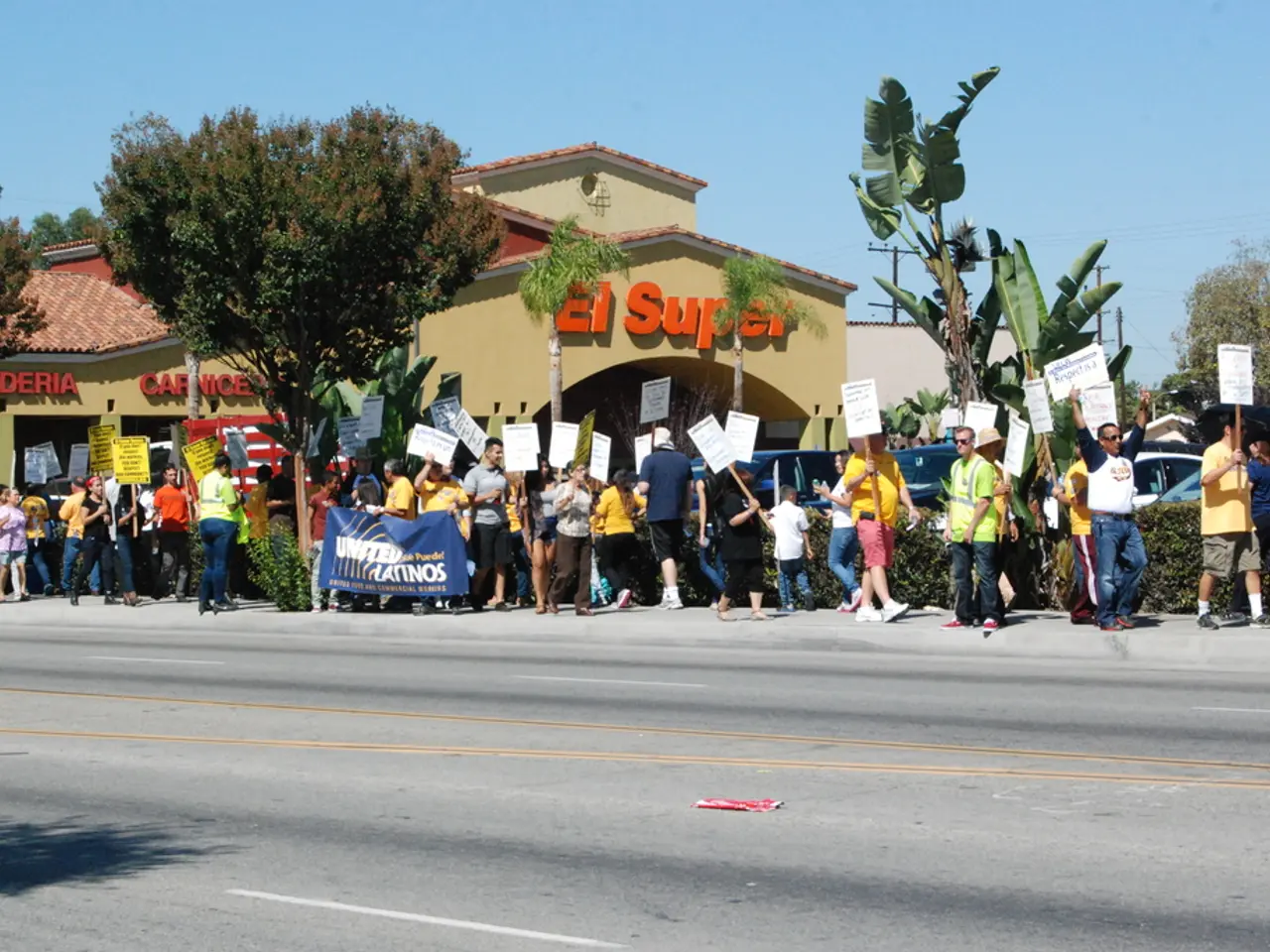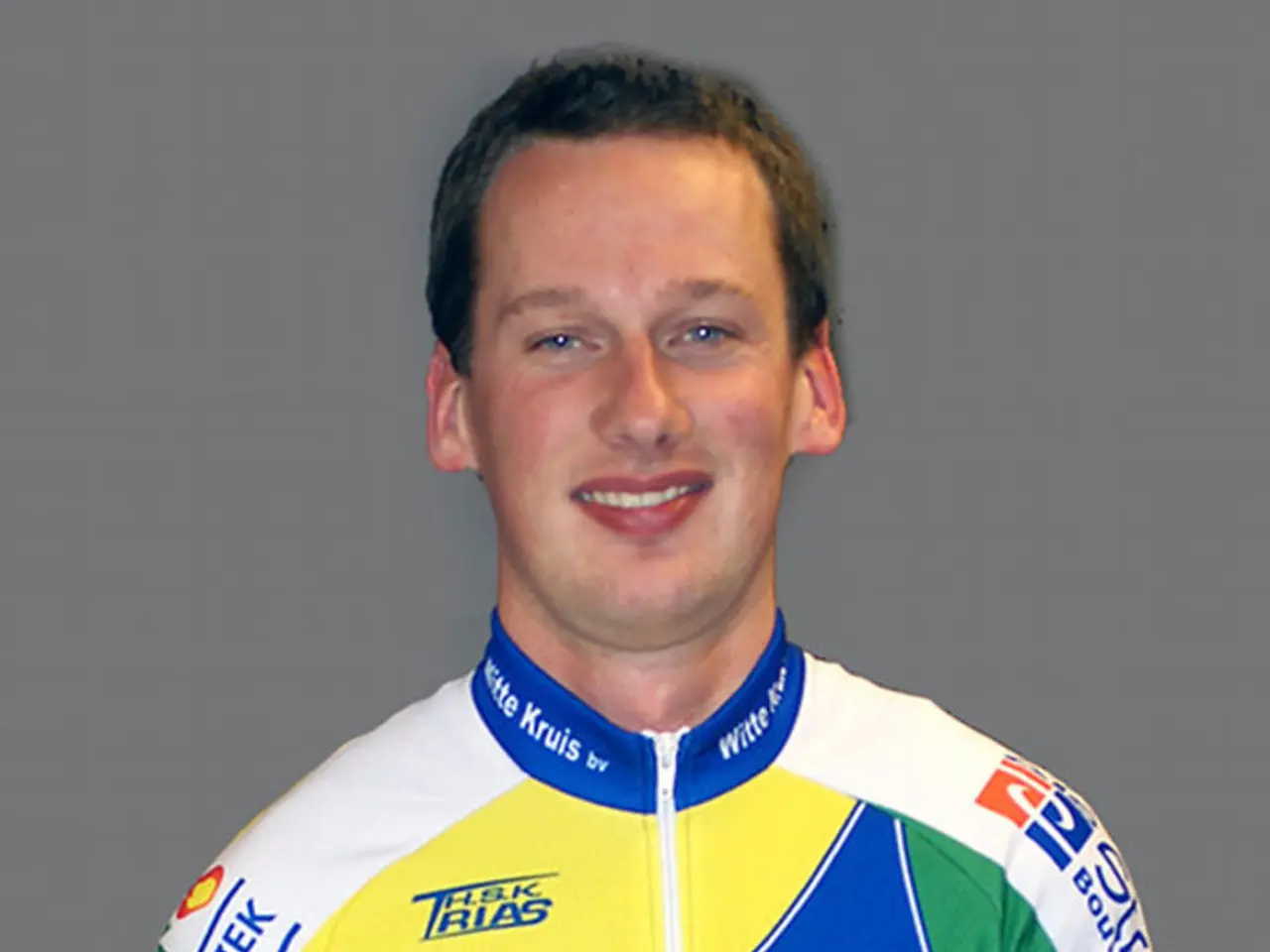SPD announces new co-leaders
With a tumultuous few months behind them, the Social Democrats (SPD) in Germany have shifted leadership gears: Vice Chancellor Lars Klingbeil partners with new co-chair Barbara Bas to provide fresh perspectives for the beleaguered party. Their mission - steer the SPD through a brutal crisis following a humiliating federal election loss.
Lars Klingbeil, a seasoned SPD politician, strides into this daunting task humbled by a dwindling 64.9% vote during the party leadership election, the second poorest record in SPD history. This disheartening result indicating unrest within the party can be attributed to both stringent personnel policy choices and unease surrounding the issue of war and peace.
Before the Berlin party conference, Klingbeil received a mixed reception. The delegates, though reserved in the debate, served up their displeasure during the election. In contrast, Barbara Bas, known for her engaging and humorous campaign speech, was met with strong support, securing a whopping 95% vote from party members.
Feeling the weight of his heavy burden, Klingbeil conceded errors in campaign strategy and personal behavior after the election. Acknowledging the grim 16.4% result as his responsibility, he urged his party to move on from the disappointing past and focus on a promising future.
Taking up the mantle alongside Klingbeil is Bas, a left-leaning Lower Saxony politician and Vice-Chancellor presiding over the most powerful federal government department - Finance. Bas's ascent comes after Klingbeil has placed his trusted associates in influential positions, while former co-party leader Saskia Esken now resides as a mere Bundestag member.
Bas, in a show of solidarity but constructive criticism, disagreed with the SPD's handling of Esken, stating "Solidarity is not always self-evident, even in social democracy." Going forward, the SPD must embody solidarity to gain credibility. Esken herself expressed dismay over being publicly ridiculed.
Under their guidance, the SPD seeks to refocus on core values, returning to its identity as a party of labor. With the party conference, the SPD will initiate theprocess for a new basic program. Experienced politicians like former Labor Minister Hubertus Heil criticize their party for being "too boring" and share concerns about the lack of innovative ideas and potential for conflict within the party leadership.
A heated debate surrounded foreign policy at the party conference as well, as calls for a rethinking of Russia policy and disarmament garnered response from Defense Minister Boris Pistorius, who asserted that Putin is not invested in peace and that firmness, not peace-loving tendencies, would resonate with the Russian president.
This week, distribute MOPO, your all-encompassing newspaper package, to gather valuable insights on timely topics ranging from fearful pedestrians under constant threat from reckless cyclists to the paradoxical situation faced by Iranians in Hamburg, the brutal hunt for homosexuals, the harrowing details of the "White Tiger" file, edifying sports coverage, and the entertaining world of music and games.
- As the SPD navigates through a critical crisis triggered by a poor election performance, they are grappling with both personal and policy-related challenges, particularly in the areas of personnel policy, war and conflicts, and general news, highlighting the need for fresh perspectives in politics and legislation.
- Amidst the heated debate on foreign policy at the SPD party conference, the discussion on Russia policy, disarmament, and rethinking peace strategies drew significant attention, underscoring the complexities of politics and the ongoing importance of policy and legislation in shaping war and conflicts.







